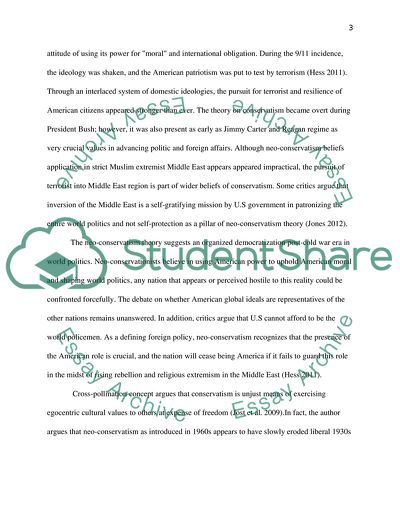Cite this document
(The U.S Power in the Middle East Report Example | Topics and Well Written Essays - 2250 words, n.d.)
The U.S Power in the Middle East Report Example | Topics and Well Written Essays - 2250 words. https://studentshare.org/politics/1839878-the-power-of-the-usa-in-the-world-is-it-declining-or-is-it-still-the-same-especially-in-the-middle-east
The U.S Power in the Middle East Report Example | Topics and Well Written Essays - 2250 words. https://studentshare.org/politics/1839878-the-power-of-the-usa-in-the-world-is-it-declining-or-is-it-still-the-same-especially-in-the-middle-east
(The U.S Power in the Middle East Report Example | Topics and Well Written Essays - 2250 Words)
The U.S Power in the Middle East Report Example | Topics and Well Written Essays - 2250 Words. https://studentshare.org/politics/1839878-the-power-of-the-usa-in-the-world-is-it-declining-or-is-it-still-the-same-especially-in-the-middle-east.
The U.S Power in the Middle East Report Example | Topics and Well Written Essays - 2250 Words. https://studentshare.org/politics/1839878-the-power-of-the-usa-in-the-world-is-it-declining-or-is-it-still-the-same-especially-in-the-middle-east.
“The U.S Power in the Middle East Report Example | Topics and Well Written Essays - 2250 Words”. https://studentshare.org/politics/1839878-the-power-of-the-usa-in-the-world-is-it-declining-or-is-it-still-the-same-especially-in-the-middle-east.


